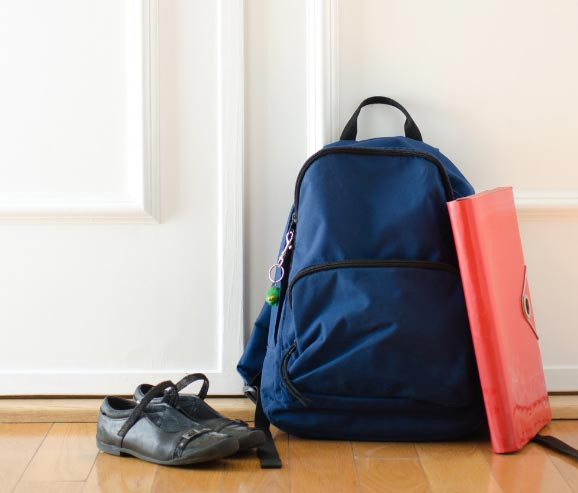3 Easy Steps to Make the Upcoming School Year Better Than the Last

It’s that time of year again when all of the stores start transforming into a school filled with “Back to School Specials” and all things Crayola!
The start of school is just around the corner and you go from loving summer living to feeling that familiar pit in your stomach, knowing what is quickly approaching. How are you going to make sure that this year doesn’t turn out like the last?
The fear that your child might not ever like school and just doesn’t seem to care raises real alarms:
- Doesn't he realize what he is doing to himself?
- Is too late to turn things around?
- What about college -- will she even be able to get in?
Guess what? We as parents cannot control their behavior!
Why Doesn't Your Child Care?
Did you know that lack of desire is often related to one of three things:
1. School doesn’t mean anything to them
The world today looks different than it did when we were kids. Your kid sees a You-Tuber killing it in business and success knowing that they did not take the traditional school path. Your kid’s outside interests or LOVES conflict with the traditional setting that they see school as and figure, “What’s the point?” With other kids for whom school is such a struggle, while they have no idea what they want in their future, but they know they can’t stand the pain and that it’s not school and the pain that it’s causing them.
2. School overwhelms them
Kids are under much more academic pressure now than they have been in the past. For whatever reason, your child/teen doesn't believe they can meet the expectations placed upon them, and doesn’t feel they can get the support they need in the way that he feels safe and comfortable. When the brain is over stressed with cognitive demands beyond what it can manage it goes into fight, flight or freeze (survival mode). Smart kids who struggle, especially with slower processing speed, weaker working memory can truly shut down under excess pressure.
3. School is Uncomfortable
Did you hear of school shootings when you were a kid? I never knew that was a possibility, much less a reality. Let’s face it, it’s a new day and when safety is an issue, your child/teen may not feel safe in school. For kids who struggle with anxiety (social or otherwise), depression, or bullying, feeling unsafe can be a real problem and may be playing a significant role in their school avoidance. These behaviors often mask their true worries and makes it seem like they just don't care. It’s vital that parents and teachers look beyond the behaviors and explore concerns before continuing to push them.
So, what's a parent to do?
Stop doing the same thing and expecting a different result.
Instead, try a different approach:
Step One:
Focus on lifelong learning, not short term grades. The goal should be learning how to learn, not figuring out a way to have a 4.0 GPA. Ask yourself: who has ever asked you what your grades were in elementary school? Middle school? If your child is not failing, then they don’t matter until high school.
When you have a child who doesn't see any value in school, punishing him for bad grades is not going to change it. Furthermore, if he is struggling and unable to meet those expectations, it will increase the feeling of hopelessness and a sense of learned helplessness. However, when you focus on mastery, you secure his academic foundation for future learning.
Step Two:
Communicate! Too often, parents want to pretend it doesn’t exist and things will just get better “next year.“ By asking your child and yourself questions you can start to gather the information that will help you come up with a plan and action steps.
The following are some important questions to get you started on the path to a better school year.
-
- What are your expectations for your child? Are they realistic, given their level of ability and available support?
- Does the learning environment feel emotionally safe and supportive?
- What is your child passionate about outside of school? Inside of school?
- When your child tells you what they would like to do in the future do you honor that or do you try to change their mind?
- What scares you the most about this upcoming year?
Tip: Be sure to download the Activity PDF at the end of this post to help you find the answers to these questions.
Step Three:
Work together! Collaborate with your child to make a plan and set school goals that are attainable and that they truly buy into.
This means it’s not about you. It’s about listening to your child’s wants and desires, not yours. Create an environment that will elevate your kid and help them prove to themselves that they can do what it takes to achieve success in and out of school. This may mean you will have to let go of some of your dreams for your child in favor of achieving what they want and are capable of.
A final word of encouragement...
It's not easy to go from protector to facilitator, but by giving kids growth opportunities and permission to fail, we allow them to experience learning through self-discovery. And that when true growth will happen. There are many people who took unique paths to success, but common to them all was a sense of personal purpose and direction.
If you have done all of the above and you are still struggling, then you may want to explore the root of your child’s struggle and seek professional advice.
Discovering how your child learns is a powerful tool to unlock their potential and close the gap between intelligence and academic success.
I am happy to talk with you to understand your child’s learning needs. If I can’t help, I will point you in the right direction to find someone who can. Click here to book a free 10-minute phone consultation.
A Simple Way to Plan for the Upcoming School Year
Download this PDF for a simple exercise that I created to start the conversation about the upcoming school year. It has proven to be a wonderful way for kids to voice their concerns, plan for their future, and enhance the parent-child relationship.

